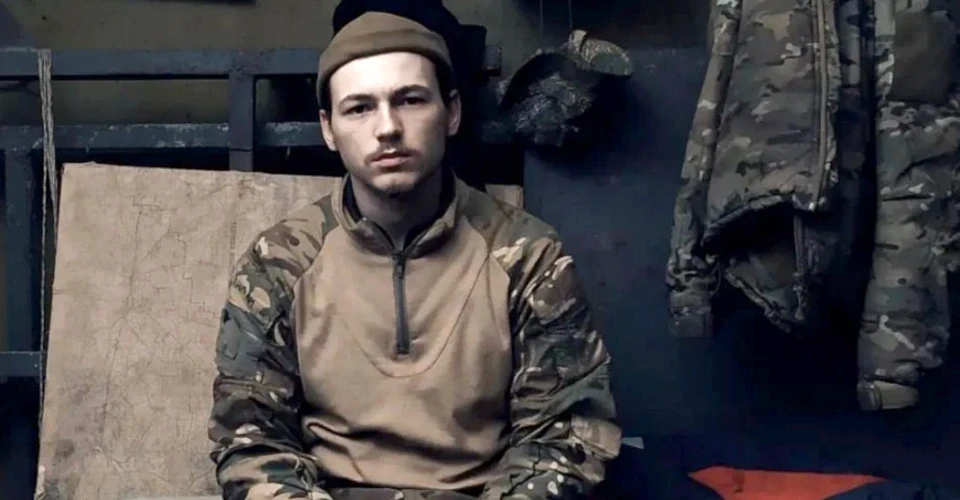
'Starved and tortured': freed Azov fighter reveals horrors of Olenivka prison
In Russian captivity, Ukrainian soldiers were systematically subjected to physical force and moral pressure, starved
Azov fighter Ivan Sokal, who spent over two years in Russian captivity, spoke about this in an interview with Espreso.
About Olenivka prison, food shortages, and hunger
“When we arrived in Olenivka, we were immediately distributed one by one to different places. It was clear that all units that had been in Mariupol were sent to one gathering place, while those from Azov were taken to a completely different location. Olenivka was a place of introduction. They still didn’t know how to treat us, and no one knew how to work with us yet. Their special services came, there were various conversations, and some people were already being interrogated,” the soldier said.
According to him, the colony held several dozen times more people than it was designed for.
“What I remember most about Olenivka is how, due to the lack of food and the bland meals, people would sit down to rest, get up to go somewhere, and immediately lose consciousness because they were literally being starved,” Ivan recalled.
Ivan learned about the tragedy in Olenivka later, after being transferred to the next detention center.
“We were deeply shocked and worried because many of our fellow servicemen had remained there. No one could give us an exact answer about who was there or whether it was a shelling or an explosion. Later, when we gathered information from different sources, we began to understand what had happened and what took place,” said the soldier.
Prosecutor’s office, interrogations, pre-trial detention center, and torture
After some time, Ivan ended up at the prosecutor’s office of the occupiers, where he underwent a long interrogation and was then sent to a pre-trial detention center.
“When we arrived at the Donetsk pre-trial detention center, as soon as the prison van door opened, we saw the infamous corridor that everyone had to either walk or run through to reach a certain point. Physical violence was already being used there. We realized we had to endure and survive,” Ivan shared.
He recalled how, during the “introduction” to Ukrainian prisoners of war, the Russians beat them, using batons and electric shockers. Afterward, they were taken to cells, where new tortures began.
“We were forbidden to sit in the cells. We were constantly standing. Our legs were swollen; some had bruised kidneys. Some couldn’t stand for long and fainted because they were already weakened from physical abuse and starvation,” the soldier said.
Twice a day, there was a shift change in the detention center.
“Each new shift always wanted to greet us. They would open the cells, either keeping people inside or taking them out into the corridor, where they again used rubber batons, wooden sticks, fists, and shouted at us. It was very audible when they opened the cells with servicemen who weren’t from the Azov Regiment; they were less harsh on them. We understood this perfectly because we had shown through our experience and work who we were and what we were capable of. That’s why they treated us this way,” Ivan explained.
There were also numerous interrogations, “and different people used different methods.”
“Some used physical violence, others combined it with electric shockers, wire connections and electric shocks, rubber batons, or simply fists and kicks,” Ivan noted.
“Never expect the truth from them”
During one of the interrogations, the Russians tried to apply moral pressure on the soldier, threatening to tell his family he was dead, claiming they had already captured Kyiv, and that Poland had allegedly attacked Ukraine.
Ivan said he didn’t take these statements seriously, as he understood they were lying.
“Never expect the truth from them. On the other hand, I knew that if I told them something, it wouldn’t change anything. I prepared myself for both the best and the worst because walking around with rose-colored glasses wouldn’t get you far. I always knew it wouldn’t last forever; the main thing was to endure. That kept me going, so future interrogations would be easier,” Ivan shared.
In total, he spent 11 months in the Donetsk pre-trial detention center before being transferred to Horlivka.
- On Wednesday, February 5, Ukraine brought home 150 prisoners of war, including officers, soldiers, sergeants, National Guardsmen, and police officers.
- News













































